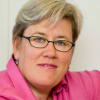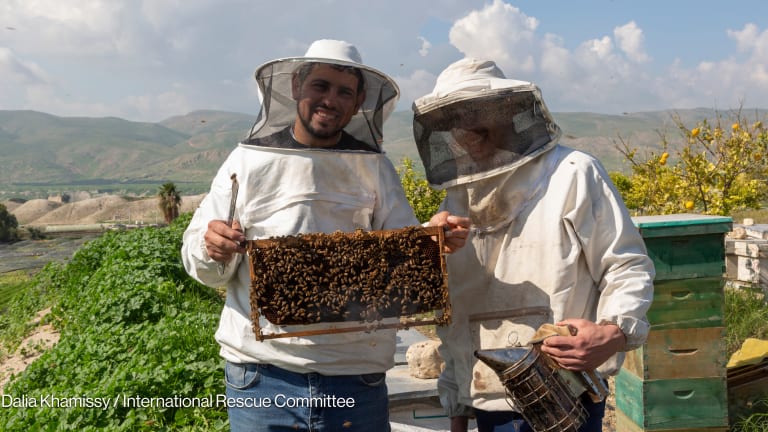
Ensure access to affordable, reliable, sustainable and modern energy for all. That was the promise made by global governments in September 2015 when the Sustainable Development Goals — including Goal 7 on energy — were agreed.
Yet significant segments of the world’s population are currently being ignored in an energy transition that is underway. Today there is a record 70 million people worldwide that have been displaced — nearly 26 million are refugees fleeing conflict or natural disaster.
~5% of humanitarian agencies’ expenditure goes toward diesel and petrol — costing the sector $1.2 billion in 2017 alone.
— Chatham HouseThe prevailing narrative around this humanitarian crisis is the struggle that Western countries face in “accommodating” influxes of migrants. Lost is the fact that most displaced people never actually make it to Europe or North America.
Instead, they arrive in countries where their basic needs can be added to the needs of their host communities. According to The UN Refugee Agency, developing regions host 85% of refugees. These regions already have significant challenges in providing essential services such as clean water, health care, and energy access to their citizens.
Access to energy is fundamental in providing all those other things we need and want — heat, light, connectivity, functioning health care facilities, computers for education, financial services, and jobs.
Despite this, energy is not a formal priority in humanitarian assistance. Humanitarian agencies have yet to comprehensively address this challenge and work with partners to ensure displaced people and the communities hosting them have access to reliable, affordable and clean energy.
The focus so far has too often been on short-term, individual solutions because displacement is seen as a temporary situation; yet, refugees on average spend over a decade living in camps, meaning these camps and their residents are in fact enduring parts of the local community. This short-term focus also encourages high-cost, high-polluting fixes. An estimated 5% of humanitarian agencies’ expenditure goes toward diesel and petrol — costing the sector $1.2 billion in 2017 alone.
Often the host communities — for example within Ethiopia, Uganda, or Bangladesh — are already “last-mile” communities residing beyond the grid. Energy poverty is already a constraint on economic growth and well-being, and it is exacerbated by influxes of new residents.
However, as we are beginning to see innovation in decentralized, renewable energy offerings developing across the developing world, these technologies, their delivery models, and their price points mean that we are at a crossroads. We can disrupt humanitarian approaches to energy — harmful fossil fuel purchasing, or we can form new partnerships, at scale, that put the last mile first and bring clean renewable energy and clean fuels for cooking to the 70 million people we cannot leave behind.
To do this means no more business as usual. Here are three steps that can move us in the right direction:
Put the needs of displaced people at the center of solutions and gather the widening range of actors willing and able to help, including the private sector.
Focus not just on distribution but on the solutions that are beginning to emerge in the new markets for decentralized and off-grid renewable energy. While the sector has seen an increase in new market-based projects, as well as more private sector engagement and innovative partnerships spearheaded by the likes of The IKEA Foundation and Smart Communities Coalition, progress still isn’t at the necessary speed or scale needed to meet the challenge.
We need data on the energy access situation of refugees and displaced people for more evidence-based solutions.
While this will, of course, be a challenge given that numbers of displaced people can and will fluctuate, we can use technology to gain a more granular level of information needed to target solutions.
Coordination has to improve.
As the world wakes up to the challenge of clean energy for the displaced, the number of actors keen to support progress is quickly growing. This is why the Global Plan of Action — a nonbinding framework that has been developed through continued consultation within the sector — must ensure targeted and coordinated efforts to help close access gaps.
The good news is that new partnerships, policies, and financial commitments targeting energy access for displaced people are emerging. Earlier this month just under 200 stakeholders from the energy access and humanitarian sectors assembled in Addis Ababa, Ethiopia, to start forging new and much-needed partnerships between key stakeholders from across sectors.
The next milestone moment will be the Global Refugee Forum, which will take place in Geneva on December 2019. This forum will mark one year since signing the Global Refugee Compact, which acknowledged that greater international cooperation is necessary to achieve long-term solutions for refugees. Energy access can be a practical way to breathe life into the compact.
The promise of leaving no one behind is at the heart of the Global Goals. It will take all of us — humanitarian agencies, energy companies, aid donors, philanthropies, and civil society — to hold the promise. The technology exists. It is affordable. The delivery models are known. We cannot harm the lungs of those who seek our protection anymore.
We owe it to them, and the world, to do better.
More reading for World Humanitarian Day
Humanitarian aid is often immune to politically motivated cuts. Not in the Northern Triangle.
North Korea, Soviet-aligned Ethiopia, Mugabe's Zimbabwe. The U.S. government provided humanitarian aid to all these places despite political tensions cutting off other funds. But this is not the case in the Northern Triangle countries where Trump administration cuts include humanitarian aid.








